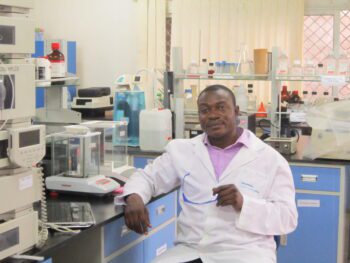Antimicrobial resistance (AMR) is a health concern with growing global significance. AMR, which is developed resistance to antimicrobial treatments in bacteria, fungi, parasites, and viruses, can cause morbidity, lost productivity, and mortality. As outlined in the article “From desperation to innovation: A patient’s battle with antimicrobial resistance,” AMR can turn standard procedures into a long-term fight to stay alive.
Although anyone can develop AMR infections, certain individuals—including people living with HIV/AIDS, children under age 5, pregnant women, and the elderly—are at particularly high risk. Bacterial AMR alone is associated with 4.95 million deaths and 102 million disability-adjusted life-years (DALYs) globally in 2019, with low- and middle-income countries (LMICs) being disproportionately affected.
As World AMR Awareness Week (celebrated in 2023 on November 18-24) emphasized, a global action plan is needed to improve awareness and understanding of AMR. The World Health Assembly endorsed such a plan in 2015, with methodologies including education, communication, and training. In addition, last year the United States reintroduced the Pioneering Antimicrobial Subscriptions to End Upsurging Resistance (PASTEUR) Act, which strengthens antibiotic development and use through support of research and development (R&D). This act creates contracts to pay for consistent access to new antimicrobials, which are effective in curbing AMR.
Despite these steps, LMICs suffer from a lack of access to information about AMR best practices and have a shortage of trained healthcare professionals and pivotal infrastructure. Sub-Saharan Africa (SSA) had the highest rates of bacterial AMR-associated deaths and DALYs across the globe in 2019. Since AMR is best combatted through using different types of antimicrobials, lack of access to medications also plays a major role in these statistics. For example, many hospitals have open access to only a few types of these medicines with fewer alternative treatments, which puts patients at greater risk of developing AMR. Though the PASTEUR act is significant, it applies only to the United States. To fight AMR globally, these principles must also be utilized throughout other regions with a focus on Sub-Saharan Africa, which has been most affected.
A recent report published by the UN predicts AMR deaths to skyrocket to 10 million in 2050, with Africa representing just under half (4.15 million) of that number. LMICs are identified as a primary concern for these deaths, with recommended approaches including co-operation within and among countries, timely notification (and related infrastructure to do so), and sustainable, predictable funding and logistics. Also mentioned are mass drug administration programs targeting neglected tropical diseases, private sector engagement, and academic/research networks to conduct basic and applied research relevant to AMR.
Global partnerships bring sustainable solutions


BIO Ventures for Global Health (BVGH), a nonprofit organization operating out of Seattle, Washington has been working with African countries to develop infrastructures that can meet these goals. BVGH develops and manages programs across the for-profit and non-profit sectors, forging public-private partnerships (PPPs) to connect the private industry to in-country African organizations such as hospitals and academic research centers. Through BVGH’s program the Global Innovation Alliance (GIA), partner sites are engaging in R&D, building clinical trial capabilities, and receiving training on topics relating to the management and research of infectious diseases (which are treated through antimicrobials).
BVGH catalyzed a collaboration between Usmanu Danfodiyo University, Sokoto (UDUS) in Nigeria, and the Johann Wolfgang Goethe University Frankfurt in Germany with the aim to tackle challenges surrounding malaria—where it is common practice in SSA to prescribe antimalarial drugs to patients with fevers without a confirmed diagnosis. This practice fuels development of drug resistance. Learnings from this collaboration can be applied to the topic of AMR, and the project itself is a strong example of how global partnerships can spur widely beneficial research and identify sustainable, lasting solutions.
With over 170 members, BVGH’s extensive network of academics, researchers, industry, and governmental professionals conducted more than 155 R&D collaborations since 2011. With the goal of lessening the burden of infectious diseases in LMICs, GIA is creating an environment to foster innovation and sustainable fixes to some of the world’s most pressing disease concerns.




